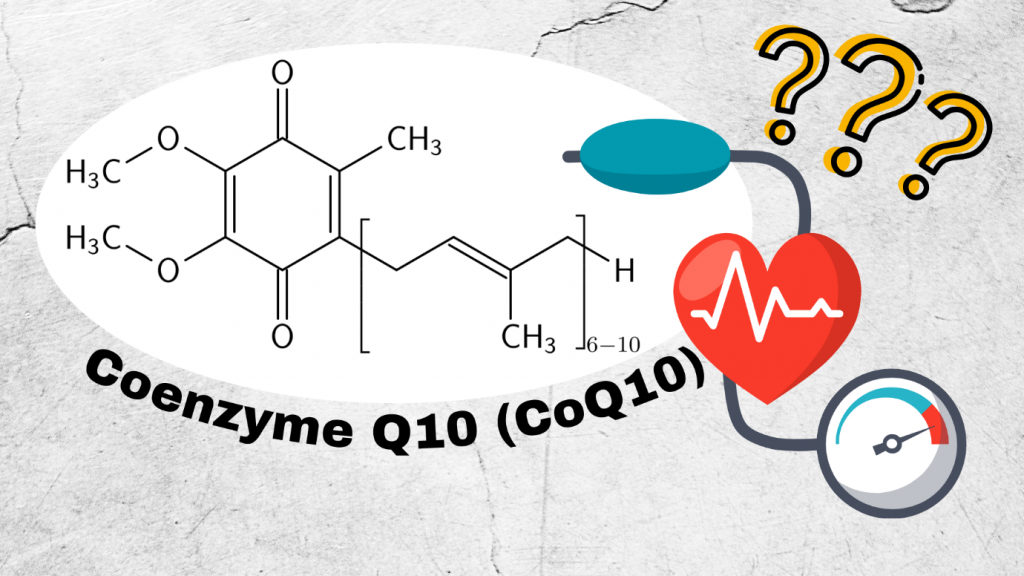Coenzyme Q10 (or CoQ10 for short) is a naturally occurring compound that helps to generate energy in your cells.
CoQ10 is stored in the mitochondria of your cells which produce energy and protect your cells from disease and oxidative damage.
While your body naturally produces CoQ10, this tends to decrease with age, and low CoQ10 levels are linked to chronic conditions like heart disease…
Coenzyme Q10 has a long list of documented health benefits, such as contributing to heart health and so-called Coq10 for blood pressure, many of which stem from its antioxidant properties.
Although CoQ10 can be found in several different forms, they all have roughly the same benefits, so we’ll be referring to the fully oxidized (ubiquinone), semiquinone (ubisemiquinone), and fully reduced (ubiquinol) forms of CoQ10 interchangeably.
Excluding your natural production, supplements are the main source of CoQ10 and are sometimes prescribed for CoQ10 deficiencies that occur due to health problems or age-related reasons.
But even if you are in good health, keeping your CoQ10 levels up can be very beneficial, as the coenzyme is a great source of antioxidants which protect your cells against free radicals.
Table of Contents
Antioxidant Benefits
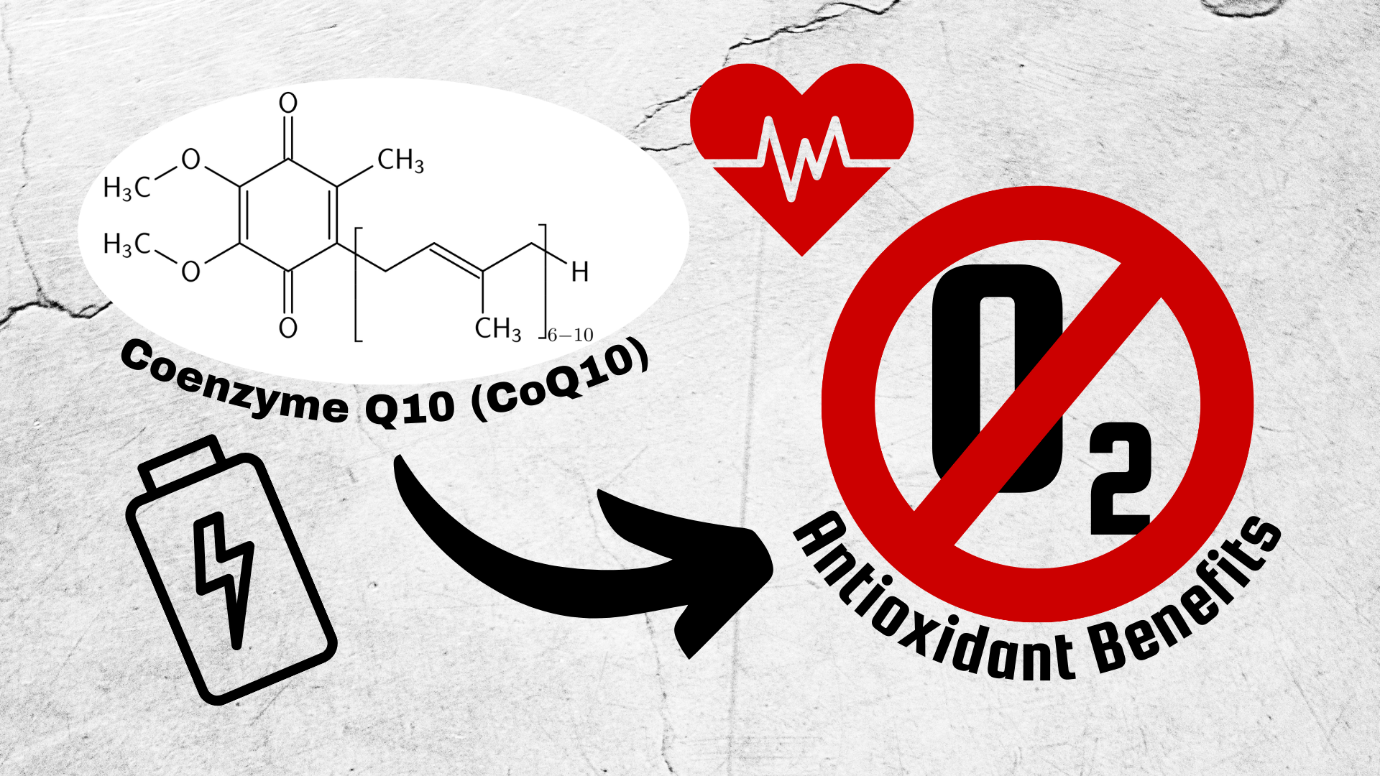
Coenzyme Q10 is a naturally occurring nutrient that helps to generate energy, transfer it between your cells, and provide antioxidant effects.
The antioxidant effects are particularly notable, as they help to tackle causes of chronic diseases such as heart disease, leading some people to rave about Coq10 for blood pressure benefits.
Antioxidants are highly beneficial to our health, as they fight against free radicals – oxygen containing molecules that damage your cells and DNA – that contribute to a wide range of health conditions like cancer and heart disease.
The use of antioxidant supplements is thought to neutralise these free radicals, reducing, or preventing cellular damage and lowering the risk of certain diseases, making Coq10 supplements highly desirable for long term health.
Hypertension Benefits
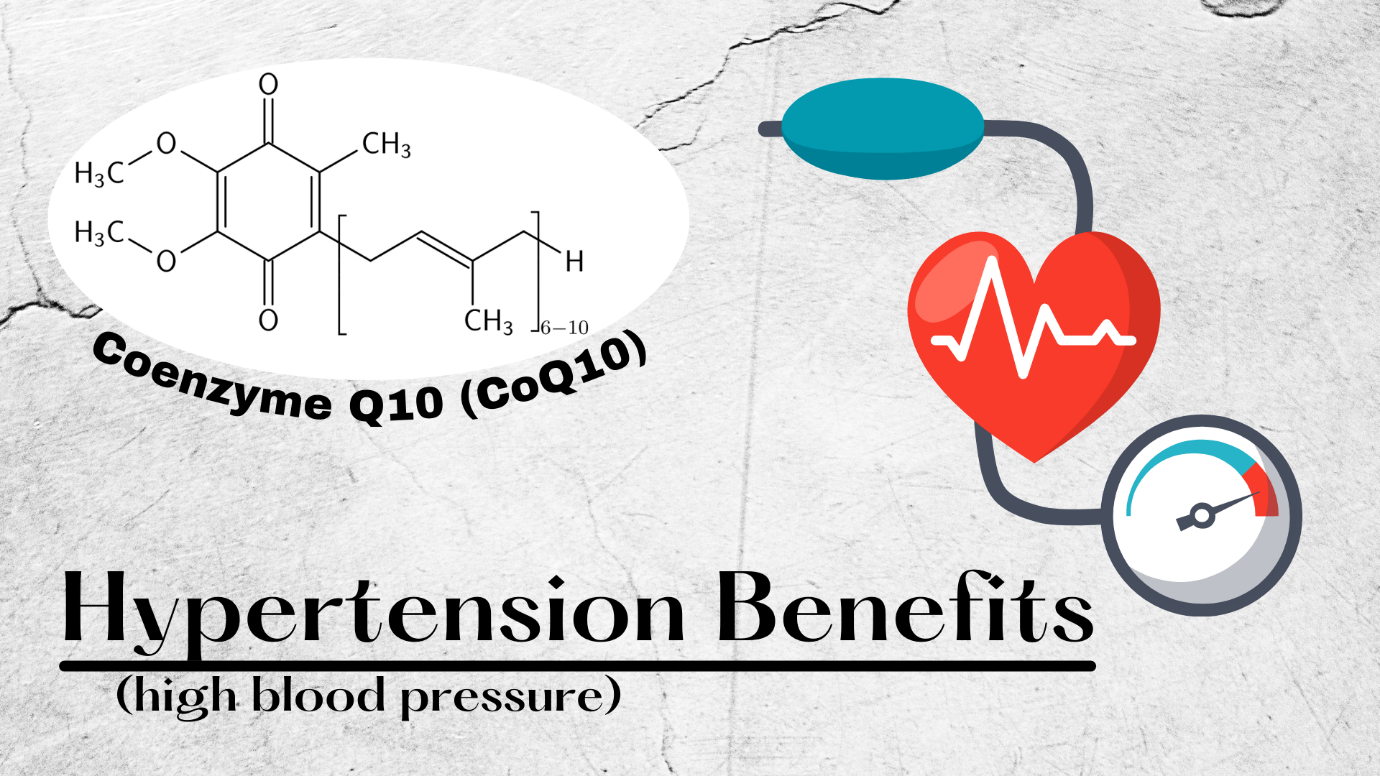
Thanks to their antioxidant effects, Coq10 supplements are theorised to prevent or treat heart diseases such as hypertension (high blood pressure) and heart failure.
The Natural Medicines Comprehensive Database has rated these supplements as “possibly effective” for the treatment of hypertension, lending a reputable source to claims of Coq10 blood pressure benefits.
Some studies have found that supplementing with Coq10 can lower blood pressure – generally within 4 to 12 weeks – though there is currently little definitive evidence to prove this.
In any case, getting plenty of antioxidants contributes to general health and provides a variety of health benefits like reducing your risk of chronic conditions, so supplementing with Coq10 may help with your long-term health.
Dosage and Preparation
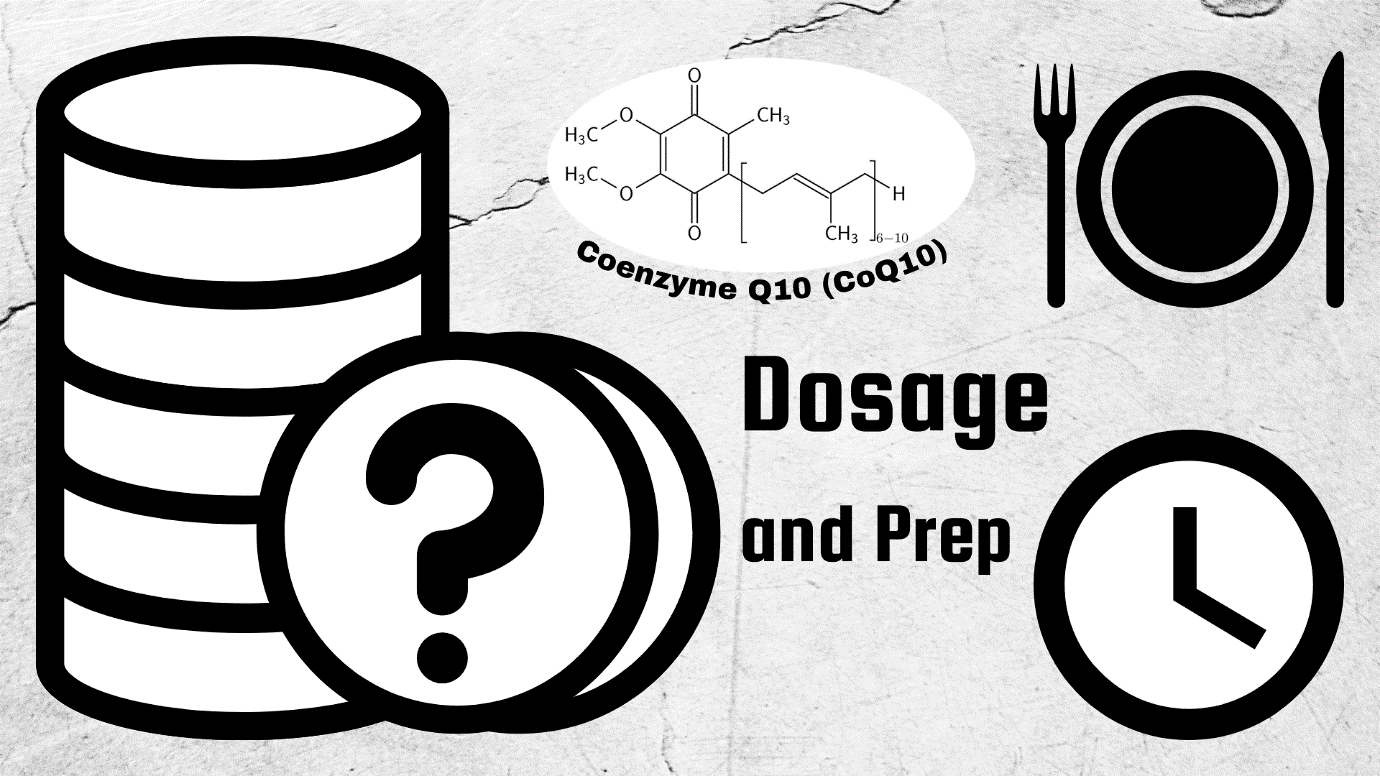
Recommended doses of Coq10 range significantly from 90mg to 200mg per day, though tests have shown that doses up to 500mg per day seem well tolerated.
Because there is limited research on the levels of Coenzyme Q10 needed to see health benefits like Coq10 for blood pressure, we recommend starting with a small dose (such as 100mg a day) and gradually increasing it until you notice the benefits.
Because Coq10 is a fat-soluble compound (meaning it needs fat to be absorbed), supplement manufacturers commonly recommend you take the supplements with food.
By taking Coq10 supplements with some form of fat, such as oil-based supplements or a fatty meal, you can naturally improve the bioavailability of your supplements and help your body metabolise all the Coq10 goodness.
Possible Side Effects
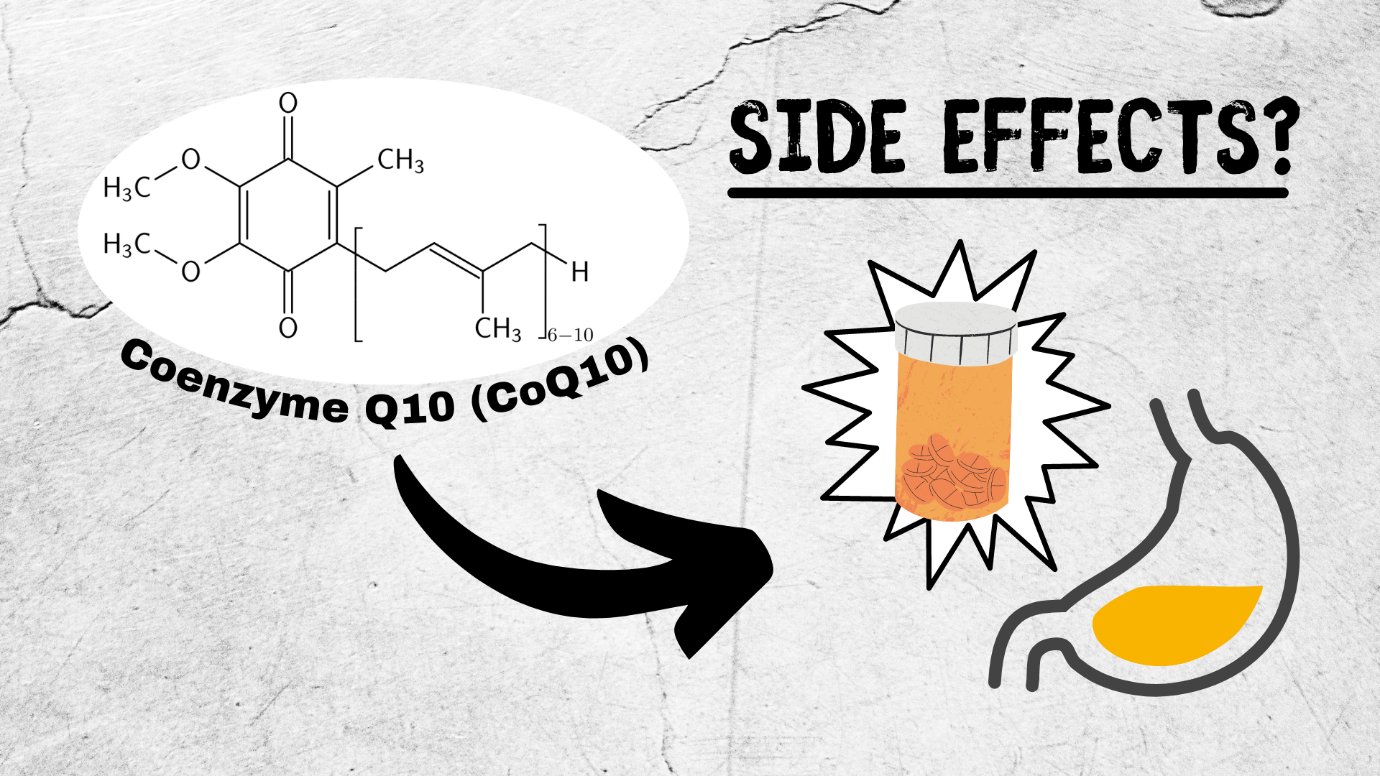
Coq10 supplements are generally well-tolerated – even in doses as high as 1,200mg a day – with no known major side effects, though some users report minor symptoms such as stomach upsets.
Fortunately, these symptoms are very minor and can be mitigated by taking your supplements with a meal to get the most of the Coq10 blood pressure benefits.
While Coq10 side effects are minimal, it may interact with other drugs, as Coq10 can lower blood pressure and sugar, potentially counteracting or reversing the effects of statins and diabetes meds.
Similarly, there haven’t been any major studies into the safety of Coq10 during pregnancy, so we cannot recommend these supplements to pregnant women or those taking medication for diabetes or chemotherapy treatment.
What to Look For
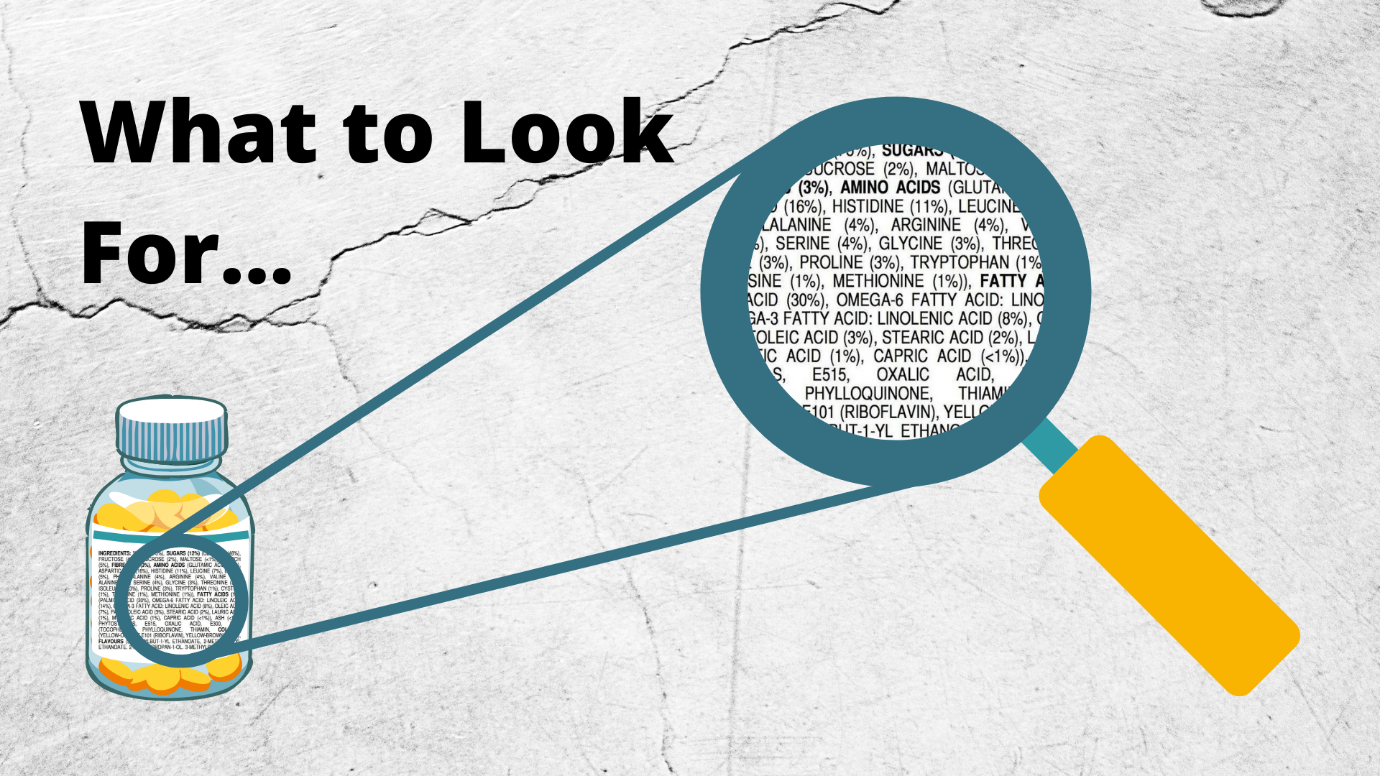
Because ‘dietary supplements’ aren’t strictly regulated in the US, quality and ingredients can vary from manufacturer to manufacturer, meaning you should always check the label.
While this uncertainty may seem stressful, you’ll be reaping the benefits of Coq10 for blood pressure in no time if you follow these tips to find a quality Coq10 supplement.
To ensure that you get a safe, high-quality supplement every time, look for brands that have been approved by 3rd-party certifying authorities like NSF International or US Pharmacopeia (USP).
Supplements approved by these organisations contain what they say on the label, with quality ingredients and no impurities so you can rest assured you’re getting what you paid for.
A Word of Advice
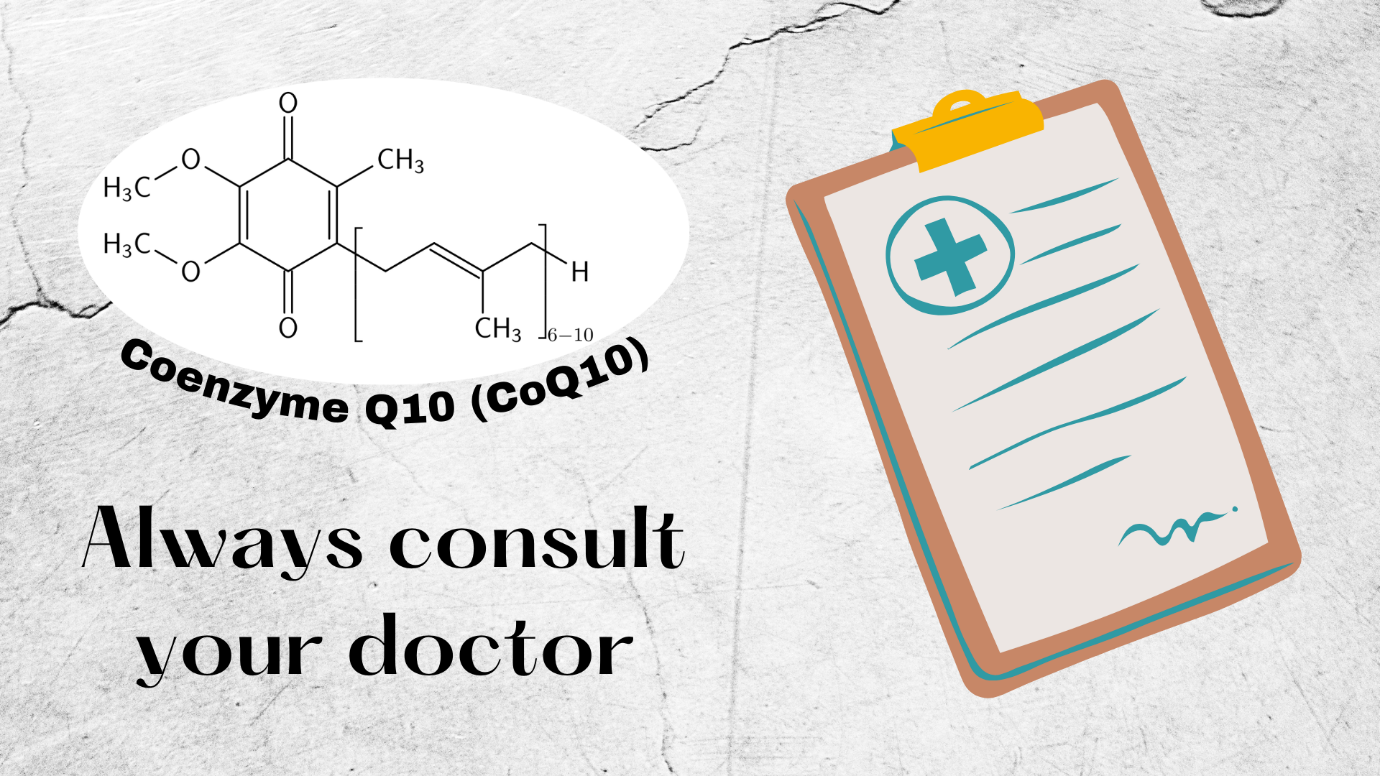
While Coq10 offers many benefits – whether you take Ubiquinone or Ubiquinol – there isn’t enough research to suggest that the Coq10 for blood pressure benefits are better than conventional medicine.
Furthermore, prevention is better than a cure, so exercising regularly, eating healthy and quitting smoking will do more to improve your heart health than Coq10 supplements ever could.
If you’re concerned about your heart health or taking medication for hypertension, you should consult your doctor before taking Coq10 supplements regularly, as they may interact with other medications.
Although Coq10 is generally safe and offers many health benefits, it can interfere with other medication, so make sure to get the all-clear from a professional before taking these supplements regularly.
